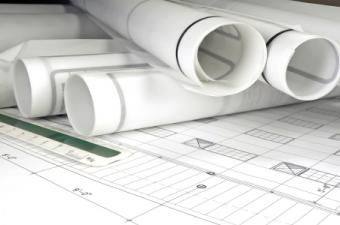The market remains a dim one for new single-family homes, according to an index jointly released by ""Wells Fargo"":https://www.wellsfargo.com/ and the ""National Association of Home Builders"":http://www.nahb.org/ (NAHB). The index registered confidence at 15 on a 0-to-100 scale, staying largely the same since July and remaining above the lowest dip in confidence seen in January 2009.
[IMAGE]The Housing Market Index (HMI), conducted by the trade association and mortgage giant for over 20 years, measures home builder perception about single-family home sales and expectations. According to a ""statement"":http://www.nahb.org/news_details.aspx?sectionID=134&newsID=13212, any reading above 50 amounts to a vote of confidence by builders about their market.
The August reading showed that two of three component index went up slightly. Current sales hit a new high since March, moving up by one point to hit 16, with the measurement for buyer traffic following by climbing to 13 after a two-month exile at 12. Sales expectations over the next six months fell to 19.
The HMI index also put regional improvements in gray territory, viewing a four-point increase to 19 across the Northeast, with the Midwest dipping by two points to 10, the South steadying at 17, and the West moving up to 15 by one point.
Commenting on the pale numbers, Bob Nielsen, NAHB chairman and a Reno-based homebuilder, said in the statement that ""[b]uilders continue to confront the same major challenges they have seen over the past year, including competition from the large inventory of distressed homes on the market, inaccurate appraisal values, and issues with their buyers not being able to sell an existing home or qualify for favorable mortgage rates because of overly tight underwriting requirements.""
He went on to say that 41 percent of HMI respondents signaled losses in sales contracts as a result of stagnation in home sales, with buyers unable to take their properties to market. Also appearing in the statement, David Crowe, NAHB's chief economist, fingered job creation as responsible for wavering consumer confidence.
[COLUMN_BREAK]""The uncertain economic climate and concerns about job security are discouraging many potential buyers from exploring a home purchase at this time,"" Crowe said. ""While buying conditions are very favorable in terms of prices, interest rates and selection, consumers are worried about what the future will bring, and builders are echoing those sentiments in their responses to the HMI survey.""
Adding to their woes, major homebuilding companies suffered losses in the financial sector last week, with a gusty Dow Jones Industrial Average blowing through stocks and shares. Stocks for ""D.R. Horton, Inc."":http://www.drhorton.com/ scraped by with 3.90 percent Wednesday, with shares each tying off at $9.18, while those for ""KBH Homes"":http://www.beazer.com/ witnessed their holdings fly away at 11.27 percent. Bipolar stocks battered ""Beazer Homes USA, Inc."":http://www.beazer.com/, meanwhile, by leading the company into a 12-percent drop that closed shares at $1.62 per on the same day.
Spokespeople for D.R. Horton and KBH Homes could not be immediately reached for comment.
Economists call home construction a vital sector in the housing industry and economic recovery at large. Homebuilding companies annually create millions of jobs, with recent ""Labor Department"":http://www.dol.gov/ reports serving up telltale signs about health in the housing industry and economic recovery: the construction industry as a whole added 5,814 jobs, marginally up from 5,734 in June.
Moreover, without new home construction ├â┬ó├óÔÇÜ┬¼├óÔé¼┼ô a bellwether for new sales ├â┬ó├óÔÇÜ┬¼├óÔé¼┼ô home prices and job creation across the larger economy are also less likely to climb out of double-dip territory.
Speaking to _MReport_ for a past story, Vincent Valvo, group publisher at the Massachusetts-based ""Warren Group"":http://www.thewarrengroup.com/portal/, cited wider implications for poor showings in home construction and household formation.
""Very few people move into a house with the stuff they've got,"" he said. ""They often come in and say, I want to do some landscaping. I need a gas grill. I need new drapes. I need a lawnmower. I need a snow-blower. I need gardening equipment. When you get a house, you go out and buy stuff that has this exponential ripple effect across the economy.""
And if people aren't buying new homes?
""People don't have jobs, so they're not buying houses; not buying houses, not buying things; so manufacturers can't employ people; people don't have jobs, people can't buy houses,"" Valvo said.
Greg McBride, a senior financial analyst for ""Bankrate"":http://www.bankrate.com/, pulled the focus back to job creation in a past interview.
""So much hinges on jobs,"" he said. ""Until we see consistent and substantive job growth, people will question the strength of the economic recovery and the housing market will continue to lag as prospective homebuyers stay on the sidelines.""

 theMReport.com Your trusted source for mortgage banking news
theMReport.com Your trusted source for mortgage banking news









